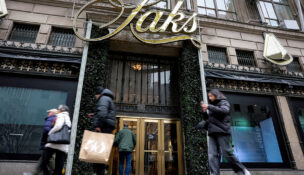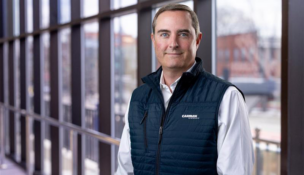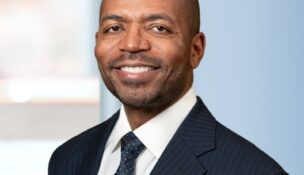Formerly ousted U.Va. president has questions about Ryan’s departure
In 2012, Sullivan was forced out by university board members, then reinstated
Kate Andrews //July 11, 2025//

In a 2012 photo, University of Virginia president Teresa Sullivan addresses a crowd of supporters on the steps of the rotunda as Rector Helen Dragas, left, applauds after the board reinstated her as president in Charlottesville, Va. (AP Photo/Steve Helber)

In a 2012 photo, University of Virginia president Teresa Sullivan addresses a crowd of supporters on the steps of the rotunda as Rector Helen Dragas, left, applauds after the board reinstated her as president in Charlottesville, Va. (AP Photo/Steve Helber)
Formerly ousted U.Va. president has questions about Ryan’s departure
In 2012, Sullivan was forced out by university board members, then reinstated
Kate Andrews //July 11, 2025//
SUMMARY:
- Former U.Va. President Teresa Sullivan recalls her own brief ouster in 2012
- DOJ reportedly pressured Ryan to resign or risk federal funding
- Sullivan says university boards are much more politically driven and polarized now
Teresa Sullivan first wants to make one thing clear: She doesn’t have any inside scoop on what took place behind the scenes with the unexpected resignation of University of Virginia President Jim Ryan, whose last day leading the university is Friday.
“I’m 1,400 miles away,” she says, having moved to Texas following her retirement last year as a member of U.Va.’s faculty. “I don’t understand what happened. For starters, does the Justice Department have some evidence of wrongdoing? What is the evidence? Did the board play any role in this, or do they just stand by and accept the resignation? I don’t know. Did the governor play any role? I don’t know.”
Other than questions about Ryan’s resignation in June, which he acknowledged was due to the federal government’s pressure to oust him from the university he led since 2018, what Sullivan has is experience and context.
In 2012, Sullivan suddenly resigned as president of U.Va. after the university’s rector and vice rector at the time, Helen Dragas and Mark Kington, asked for Sullivan’s resignation, stating they were unsatisfied with her performance. The following day, Sullivan agreed to leave, just two years after taking office.
“I never anticipated something like that would happen, nor do I feel I had any warning of it,” Sullivan said. “And so, I would say initially [it was] pretty disorienting, and I also thought it was final. I do respect that the [university] board [of visitors] has the right to hire and fire presidents, and I don’t think we can start questioning that. Or, you know, basically our whole university governance system gets turned on its head.”
Dragas announced Sullivan’s resignation to the full board and university vice presidents and deans on June 10, 2012. That same day, then-Gov. Bob McDonnell thanked Sullivan for her service, and so did several deans. At this point, though, faculty members and students began to react with shock and questions about the board of visitors’ decision process.
Meanwhile, Sullivan started making appointments out of town to find a new job, and was only vaguely aware of what was happening back in Charlottesville. Sullivan’s supporters gathered on U.Va.’s Grounds with signs protesting her dismissal, while an alumnus started an online petition to reinstate her. Also, relations between university faculty, students and staff and the Board of Visitors started to erode significantly. Major donors also expressed serious concerns.
The governor sent a letter to the board on June 22, 2012, telling them that if they didn’t reach a conclusion within days about Sullivan that he would ask for the entire board’s resignation.
On June 26, 2012, just 16 days after Sullivan’s resignation, Dragas stood next to Sullivan on U.Va.’s Grounds — applauding as Sullivan was reinstated as president. It was the end of a dramatic period for the university, and Sullivan would remain U.Va.’s president through 2018, when Ryan was hired. Dragas spent a final year on the board, although not as rector.
“I had no idea the campus would organize,” Sullivan said, looking back. “I was astonished at what happened. The fact that it was successful was really amazing to me.”
Supporters of Ryan also turned out in person to protest what they viewed as overreach by the Trump administration and the DOJ’s civil rights division, which is currently led by two U.Va. alumni.
Many also found fault with the board, which at the time of Ryan’s resignation was led by Rector Robert Hardie, who was appointed by two Democratic governors and rotated off the board at the end of June. Now, the board is entirely made up of appointees by Republican Gov. Glenn Youngkin, who has echoed Trump’s disdain for diversity, equity and inclusion (DEI) initiatives at universities.
Hardie and incoming Rector Rachel W. Sheridan issued a statement June 30 announcing the appointment of U.Va. Chief Operating Officer Jennifer “J.J.” Wagner Davis as the university’s acting president in the short term, and acknowledging they “share the sentiments of so many members of the university community who have expressed their sorrow about President Ryan’s resignation and their appreciation for his remarkable service to the institution.”
Davis will serve as interim president until the board names a longer-term interim president expected to remain in office until a new permanent president is hired.
Noting that the DOJ’s civil rights office had sent seven letters to Ryan over the past two months, as well as allegations that one assistant attorney general, Gregory Brown, had specifically said Ryan needed to resign or U.Va.’s federal funding would be in jeopardy, Sullivan thinks it’s possible the federal government’s problem with Ryan could have been “purely personal.” Brown, then a private attorney based in Charlottesville, sued Ryan and the university on behalf of a Jewish first-year student in 2024, claiming the student was the victim of antisemitic attacks on campus. That lawsuit was settled by the university under terms that have not been disclosed.
Ryan’s farewell announcement indicated that he believed it was personal: “If this were not so distinctly tied to me personally, I may have pursued a different path,” he wrote.
Aside from federal involvement, Virginia Democrats have accused Youngkin of trying to exert control over the state’s public universities through his university board appointments, and the state is in court with nine state senators over the validity of a state Senate committee’s vote last month to reject eight of Youngkin’s board of visitors picks, including naming former Virginia Attorney General Ken Cuccinelli to U.Va.’s board.
Sullivan notes that the board that hired her in 2010 was far less partisan than state university boards are now, a reflection of the overall political polarization in U.S. society.
Would greater board support even have mattered for Ryan, given the federal government’s power over funding and other processes, such as student visas? It’s hard to say.
“Harvard did back President [Alan] Garber, and they’re now in litigation. For a state university, it’s more problematic,” Sullivan said. “At least in the commonwealth of Virginia, your attorney is the attorney general, and so would Attorney General Jason Miyares go along with the university suing the federal government? It strikes me that would be a long shot.”
Meanwhile, Ryan will go on a sabbatical, with the university saying he will eventually return to U.Va as a law school faculty member, a long tradition among former presidents, including Sullivan, who taught sociology classes at Virginia following her retirement as president.
As for hiring Ryan’s successor, Sullivan anticipates that it will be a hard job for the board to accomplish, but she tries to keep in mind what really matters in the grand scheme.
“Great universities are great not because of their administration,” she said. “It’s the faculty. It’s the faculty who teach the students and treat the patients and do their research. It is important to keep a great faculty. I think the undergraduate experience at U.Va. is an excellent experience. The students are very good. They’re very motivated. They motivate each other, and the faculty are really dedicated to delivering a great product in the classroom.”
t

















